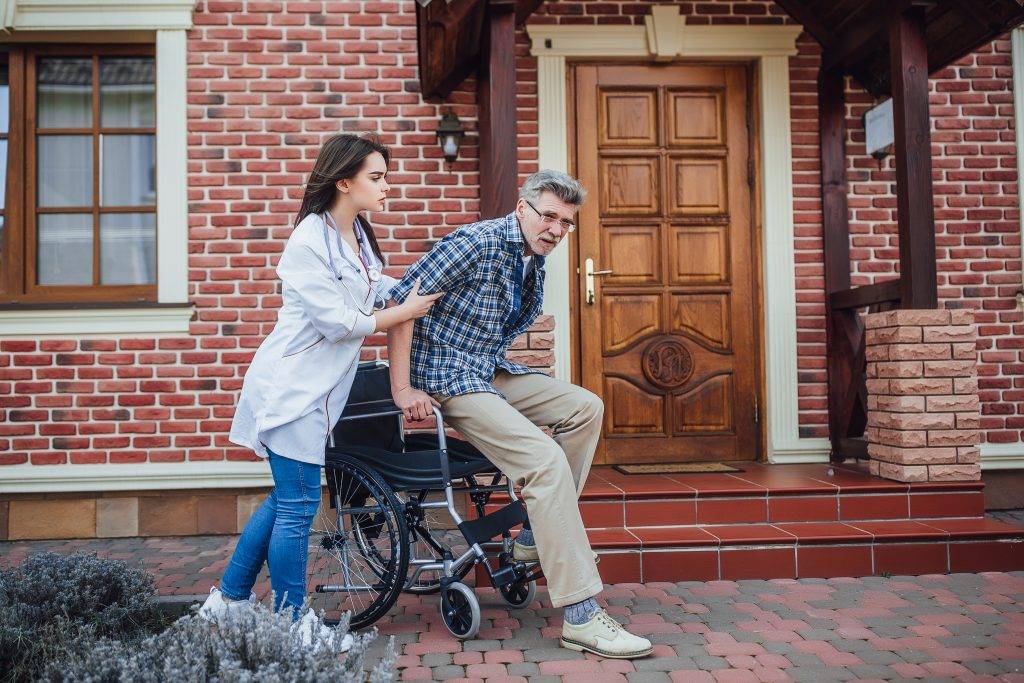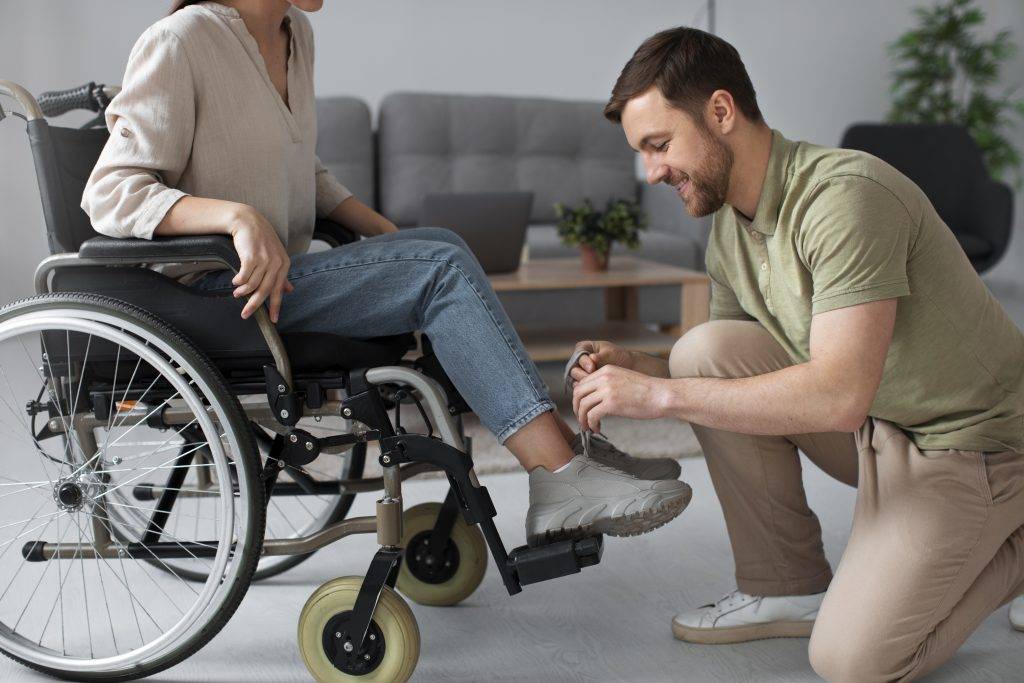It’s never too late to choose to live independently with the Independent Living Option

No, it is not selfish to want to live independently. In recent times, there’s been so much talk about living together and sharing with one another. People are building communities that connect local systems more closely with each other, to help each other survive- especially during the pandemic. However, this has also brought a lot of confusion in the thinking patterns of people causing internal chaos about their personalities and questioning their need to have personal space from time to time. It is not a bad thing to be an introvert, to want personal space, to want to take time out to concentrate on life goals. This is harder to do in a group setting when group goals become more immediate than personal ones. When do you find time for yourself in this situation? Is it wrong that sometimes you just need some time with your own thoughts, your own breath? Is it wrong to want to focus on you over the group? Not at all! Being a part of a community doesn’t mean your entire life has to be designed integrated with everything. You can still wish to live alone and stay connected to the community. In fact, living independently may give you more time to do things that would indirectly benefit the community even if you’re not interacting with them. Like spending time writing poetry that you might read out one day at a poetry night for the community; discovering a new recipe on your own that your friends and family might get to enjoy in the future. This is not a selfish desire to have and it’s never too late to want to make this change. At Cosy Home & Community Care, we want what’s best for you and make it possible for you to discover and explore your own identity, as much as the worlds. With our new Independent Living Option (ILO) you can now choose where you want to live, just how you want to do it and what kind of support system you want to be surrounded by. All you have to do is tell us and we will design a living package just for you. We also understand how many times, we don’t really know what we want until we try something out. Cosy Home and Community Care allows you to change the details of your plan as and when you figure out what you want, or don’t want. This is not indecisiveness, it is fine-tuning to the life you want to live- and we want to help. What is the Independent Living Option (ILO) and does this mean living alone? This new Independent Living Option (ILO) puts the individual first- not the individual alone. It is a living arrangement that supports your personal goals and dreams whether in a shared living space or living alone. It is a designed model that you can include in your plan. You have the choice of a wide range of living arrangements according to your personality and what you want to achieve. Living Arrangements under the Independent Living Option (ILO): Living Alone: Our support team and physical supports, if needed, are available to assist you in your own home. Co-Residency: You can opt for the support team to live with you on a full time basis or for short intervals depending on your needs. Host Arrangements: Here you have an option to live in a full time in a host home, who is unrelated to you and you will be supported. Living Together: You get to choose who you want to live with, with support available as you make choices to become more independent. Once you choose the arrangement you want to experience, Cosy Home & Community Care then tailors a plan to help empower you to live independently within the option you have chosen. The Independent Living Option (ILO) is designed with four main features that are implemented at different stages so that you are eased into the new way you want to live, in your new home. Features of the ILO package: Individual focussed supports Staged Implementation A primary Support Approach Supplementary Support Why would living independently benefit me? As hard as we work out there in the real world, it is nice to come back and take a load off. But what do you do when you come back to over grown grass, house repairs or a messy house that would probably take a whole weekend to get clean? These are some of the things you don’t have to worry about anymore, if you don’t want to. The community Independent Living Option (ILO) offers features that can be opted for, so you don’t have to stress about maintaining your house while you’re building a home. Even if you choose to live alone, you can add these features to your plan and enjoy the weekend! Features available at Cosy Home & Community Care: House repairs and general maintenance Garden maintenance House cleaning and rubbish disposal Transportation options Meal plans Social options to connect you to the community Home security Support (physical supports, technological, a support team, skill support) Other community amenities (as part of the community ILO ) More than being judged by the world, we often judge ourselves when the way we want to live doesn’t not match with many around us. Let us help you take this judgement away because everyone is entitled to living independently. Having a disability and needed support from time to time does not take away your independence. Being afraid to be alone does not mean you want to be around someone all the time. Loving to share does not mean you can 24/7. Cosy Home & Community Care not only understands these thoughts, but wants to empower you when you’re feeling them. We would like to be your new self-care compass, if you let us.
3 signs that you need assistance with personal activities

Everyone desires to live a healthy, happy, and independent life. But your disability may sometimes prove to be a hindrance. Assistance with everyday activities is covered under your NDIS plan. If you are eligible to access this service, Cosy Home Care is the best choice for you. Seeking assistance with personal activities helps you live independently without compromising your health or safety. If you’re not sure whether you need this service, watch out for these 3 signs. 1. You live on your own Living alone, especially if you have a disability, can be stressful. Add to this the trouble you face when managing your everyday tasks. All this stress is bad for your health. Why continue living with it when you can simply get a caregiver who will assist you with everyday tasks? It will make your life simpler and better. It will also give you more time to focus on productive things that actually matter. Our daily care support services for active independent living include. Hygiene and personal care Toileting and incontinence care Menu planning and meal preparation Assistance with eating Medication management and reminders Assistance for people with dementia, visual impairment, autism, mental health, motor neuron diseases and physical disabilities. Home management and care including laundry Support for the coordination of maintenance, e.g., cleaning and repairs Support and supervision for getting dressed Support for maintaining the consistency and structure of everyday personal activities Assistance with getting into and out of bed Assistance with washing and changing bed linen A personal caregiver is also very helpful if you’ve been hospitalised recently and need help with recovery. Based on your requirements, you can opt for any or all these services. 2. You need help monitoring your health To lead a healthy life, it is important that you take your medicines on time, get regular health check-ups, exercise daily and watch out for warning signs of diseases you are susceptible to. But old age or certain medical conditions can make keeping track of all this a little overwhelming. Do you often forget to take your medicines on time? If you notice it early, you could try things like setting alarms and reminders when it is time to take your medicine. Sorting medicines and keeping them in an organiser is another way to ensure you do not forget about them. But if it happens too often and you are unable to manage it on your own, it’s best to get help. A caregiver can help you manage all this efficiently. 3. You are forgetful Do you forget to turn off the stove after cooking? Not sure if you left the tap running? Do you lose your keys too often? Before you brush it off as your quirks, remember that this could mean something serious. Forgetfulness could be an early sign of a serious, underlying medical condition. It could be a progressive disease or a side-effect of medication. It is certainly not something to be taken lightly. A caregiver can help you manage your condition. If you have not already, do visit a doctor to find out the real cause of this problem.